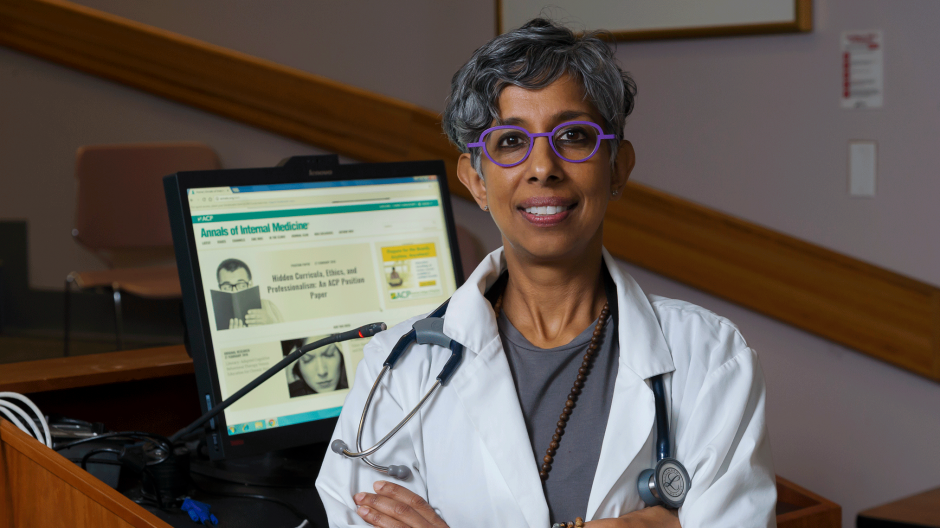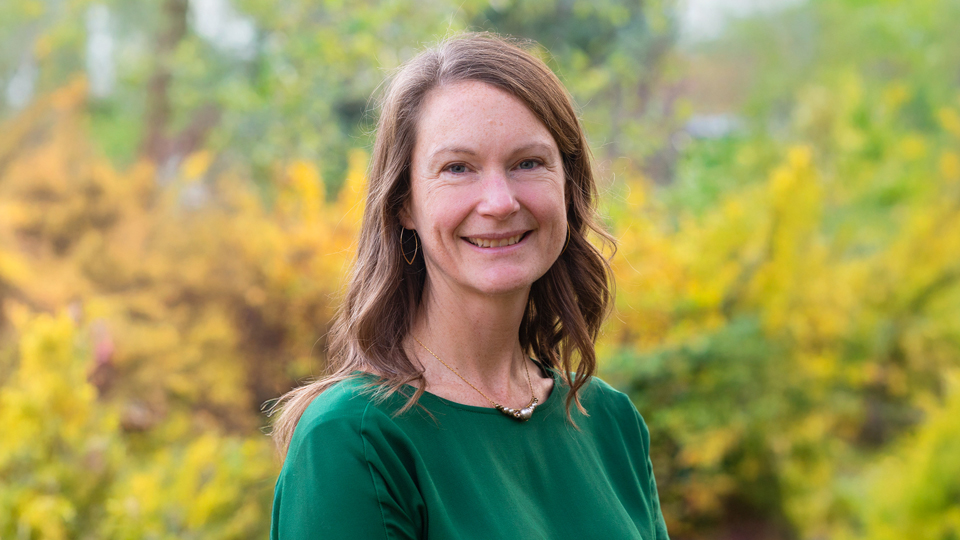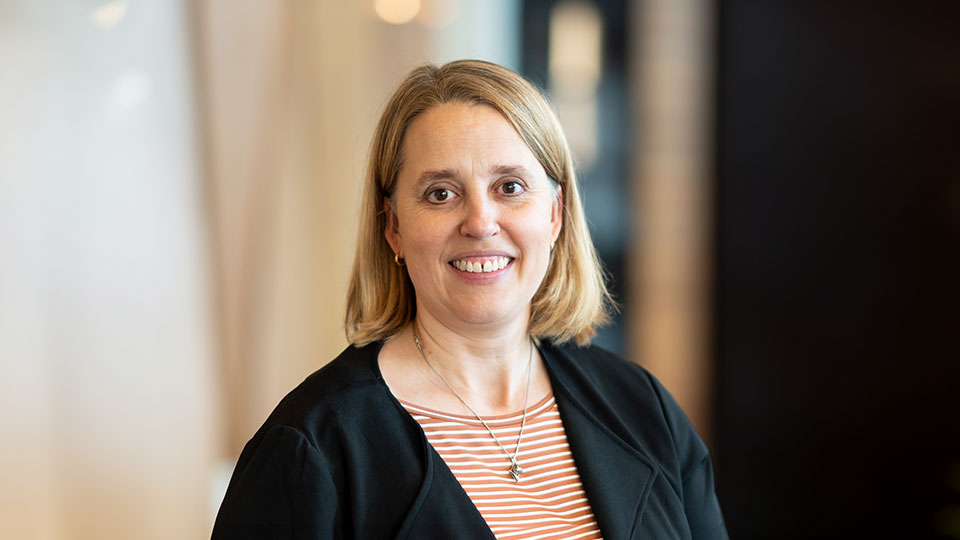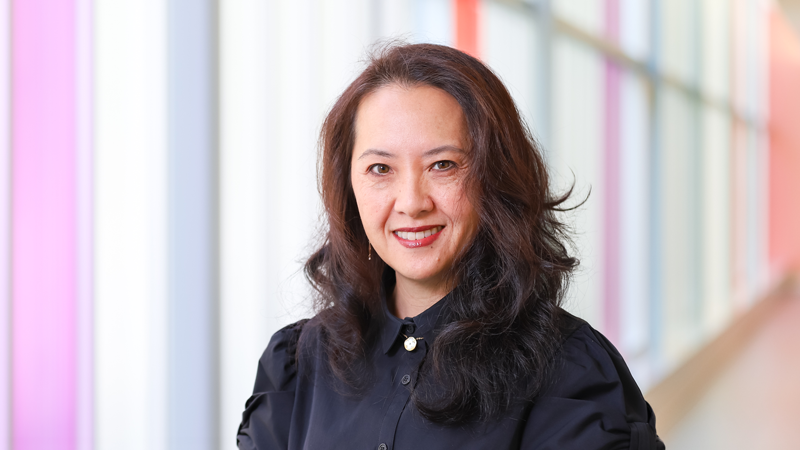
Dr. Anita Palepu first joined UBC’s Faculty of Medicine in 1996 as a junior faculty member. Raised in Sydney, Nova Scotia, she attended McMaster, Queen’s and Boston universities. A research opportunity would eventually bring her to Vancouver.
Working in the former Centre for Health Evaluation and Outcome Sciences (now the Centre for Advancing Health Outcomes) and collaborating with researchers in the BC Centre for Excellence in HIV/AIDS at St. Paul’s Hospital led Dr. Palepu to a career studying access to care for people living with HIV, followed by work on social determinants of health, particularly related to housing.
During the past 23 years she has held numerous roles with the Faculty of Medicine, advancing from clinical instructor to full professor and division head of General Internal Medicine.
This past September, Dr. Palepu became Head of the Department of Medicine.
In her new role at UBC, she is excited to bring a renewed focus on data science and build bridges with partner groups — all centred on a strong commitment to social accountability and quality care.
Who inspires you and why?
People who inspire me are those who have shown a great deal of resilience despite adversity. So I think of Nelson Mandela and Mahatma Gandhi for their roles as social justice leaders, and more recently, Malala Yousafzai. Her persistence and determination to stand up for education is incredible.
In my day-to-day life I’m inspired by many of the faculty I work with. I’m inspired by their ideas, their resilience, their persistence and their passion for wanting to make things better for patients, for science and society. I’m surrounded by great colleagues!
For you, what makes UBC different?
From a medical school point of view the distributed program makes UBC quite distinct. To have one medical school on four separate campuses in the province that has a population distributed so widely is unique.
In our department, across the province, we have more than 1,000 faculty members and only about 100 are full-time faculty. Our clinical faculty do a lot of teaching in addition to their clinical work, and many are also very active academically in terms of scholarship and quality in research — their output is amazing. I think it would be great to have a more comprehensive and responsive funding model to support clinical faculty and to enable the mission of both the university and the health authorities.
How do you like to recharge?
I practice yoga, meditate, exercise, and cycle. I’m also learning to skate-ski — it’s very humbling! It’s hard, but fun to learn something new and to work at it. Social time with friends and family is also important.
Best piece of advice:
Breathe. Remember your breath. Always strive to respond, rather than react to situations. Really try to have compassion for people. Know that your story of someone may not really be their story. Sometimes we play out our assumptions on others. Try to understand where someone is coming from before passing judgement. It’s a continuous practice — yoga and meditation has helped me with that.
First job:
When I was about 15 or 16 years old, the Tall Ships came to Nova Scotia and I worked as a kiosk vendor at the celebration. As immigrants, my parents were very protective and hesitant to let me work, but still, that was my first job in the summer!
Secret talent:
I’m not sure it’s a talent, but I enjoy singing karaoke. I also took hip-hop dance classes and I love to dance. The research on singing and dancing shows it’s good for your brain. It’s also good for reducing stress — and it’s joyful!
What are your main goals or aspirations?
My main goal with the Department of Medicine is to align the structure as best we can to fulfill our mission to provide excellence in patient care, teaching and research. I want to work towards that with all our partners, including the health authorities, to build bridges. I’d also like to build relationships in the department, with other departments and with other faculties, like the Faculty of Science. I hope that in my five years as department head we will have expanded our relationships so that we’re strong in data science and health — that’s a key project of mine.
When we think about our mission with the health authorities, I would love our faculty to build strength in integrating quality improvement and patient safety. That’s infused in everything we do clinically. If we see room for improvement, have the mindset to ask, ‘How can we work together to make it better?’ That’s important, because we have a social accountability to our patients and the public.
Social accountability is important to me because having worked clinically at St. Paul’s Hospital throughout my career, we see a much higher proportion of people who are socially and economically disadvantaged. We often discharge them into the same social and physical environments that brought them into the hospital. Sometimes our health care system can be a Band-Aid solution to upstream factors that need to be addressed. When I’m teaching and working with our trainees, I tell them, ‘The medicine is not the hard part. It’s the circumstances surrounding each person. That part is hard. Always remember our privilege.’
Favourite spot in BC?
It’s difficult to choose just one because there are so many beautiful places in BC! My family and I often go to Hornby Island in the summer. We’ve created many wonderful memories there — so that’s amongst my favourite places in BC.
Published: January 2020


